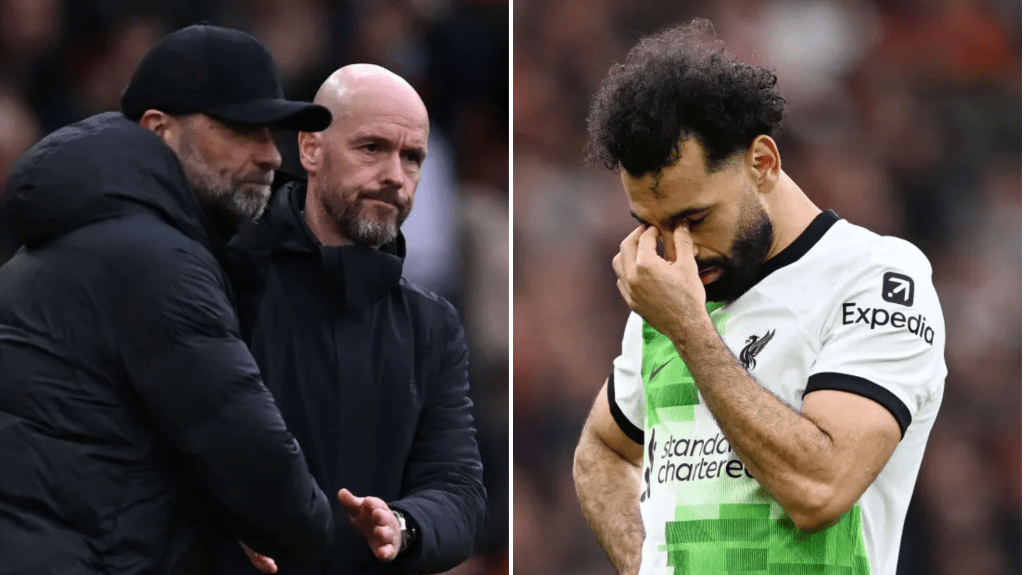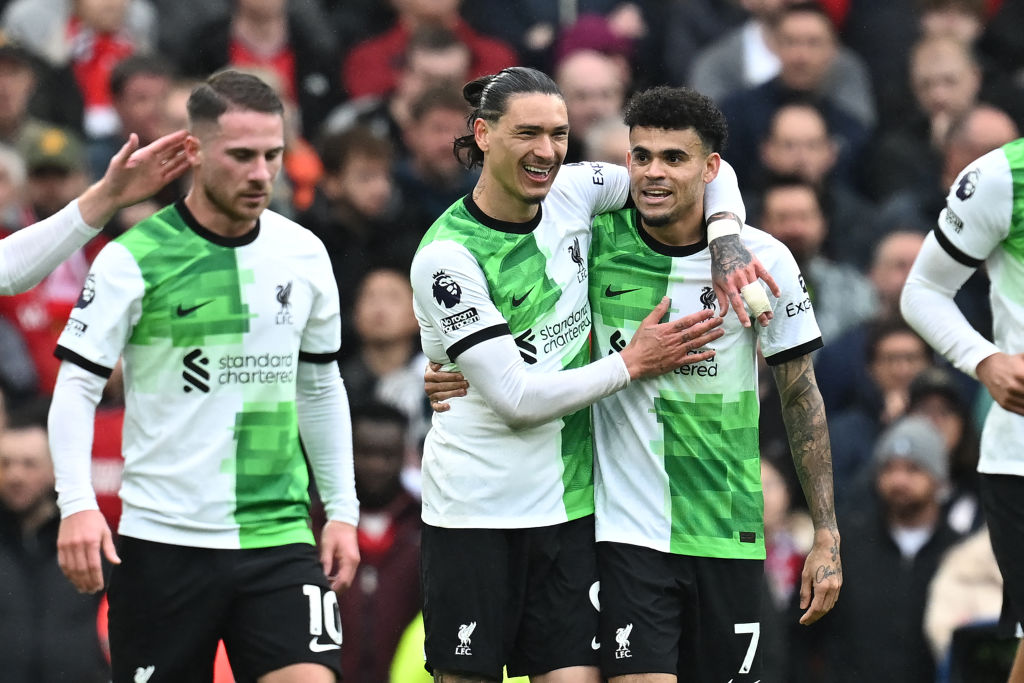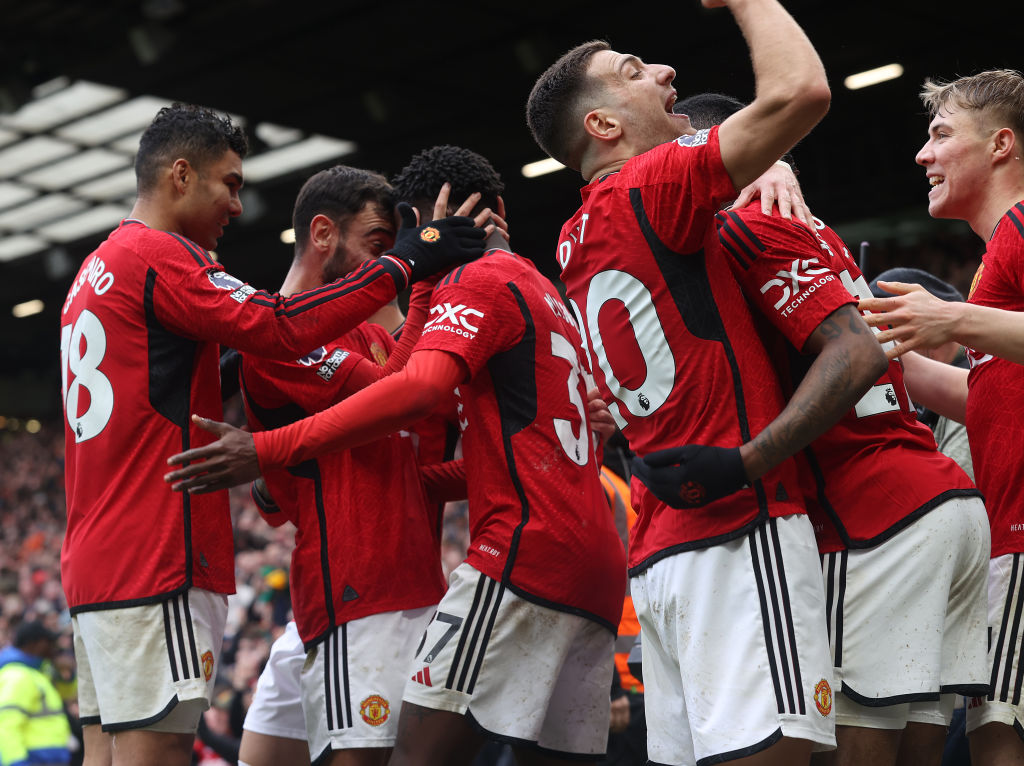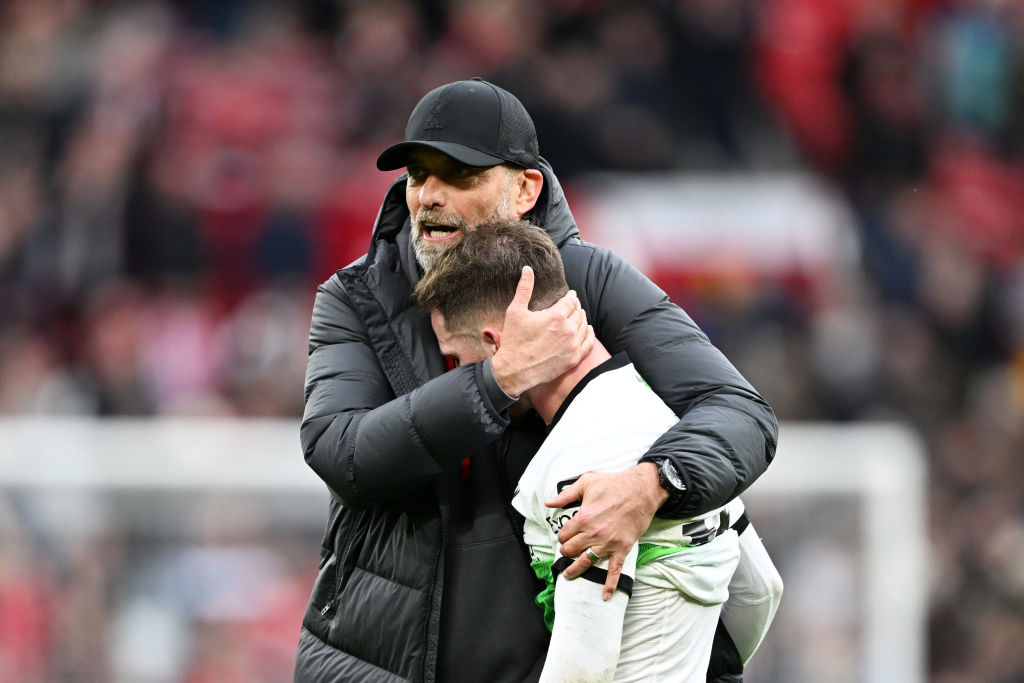
The served up yet another barnstorming match on Sunday as Liverpool were held to a 2-2 draw by . But far from being an even contest it was as one-sided as any match the profligate Merseysiders have had at Old Trafford in recent years.
You could be forgiven for thinking Thursday’s seven-goal thriller between and United at Stamford Bridge had simply been un-paused, with the match settling into an almost identical, helter-skelter rhythm in the early exchanges.
There were chances at both ends, the centre of the pitch was once again almost entirely bypassed, while Liverpool frequently broke against a defence they outnumbered – though did not make the most of the many opportunities that came their way.
With their ninth shot in just the 23rd minute, did finally give the visitors the breakthrough that had started to feel inevitable. The chances only continued after that and, as has so often been the case for United this season, you started to wonder how many goals they might end up conceding.
But United also have a habit of hanging in and they were gifted a typically barmy goal within minutes of the restart as Bruno Fernandes scored from virtually the halfway line. Still Liverpool kept finding space on the break, still they kept wasting chances, and they were punished by another world-class finish – this time from Kobbie Mainoo.
Mohamed Salah struck late from the penalty spot , but the result did little to arrest the feeling that United are heading backwards under Erik ten Hag. A point, yes, but 28 more shots conceded and more questions than answers…
Will Ten Hag’s refusal to tighten up his side be his undoing?
Since the turn of the year, United have now given up 25.16 Expected Goals (with 3.92 added against Liverpool) – five times the tally of defensive leaders Arsenal. That is perhaps an unfair comparison given how ridiculously well the Gunners have defended recently, with their title charge built on an impenetrable back-line that has given up just 5.08 xG in the last 11 games.
But, time and time again, Ten Hag has said he is not concerned by the volume of shots his side give up and has done nothing to try and fix it. He believes they are low-quality chances and is content for matches to turn into games of transition roulette – you attack, we attack – with his side’s result determined not by control or patterns of play, but by the clinicalness of his attack and the reflexes of his goalkeeper.

That was true again on Sunday, with United showing flickers on the break early on – without actually registering a shot until Fernandes’ 50th-minute goal – but looking even more exposed going the other way. It almost feels like Ten Hag is trying to weaponise the sense of dread opposition teams feel when they miss a plethora of chances, while relying on worldies and moments of magic at the other end.
As the game developed, and Liverpool got to grips with United’s high pressing, it became so easy for the Merseysiders to pass around it. Players were stepping up out of sync and the energy progressively dipped. The first half ended without a shot from the hosts (for the first time since October 2015), while Liverpool had mustered 15 and enjoyed 58 per cent possession.
Even in amongst Fernandes’ leveller and Mainoo’s brilliant strike, Liverpool still continued to break forward at will and should have punished the home side; this was very much a case of opportunity missed for the visitors. At times, players were picking up the ball on the edge of their own box and running to United’s without ever encountering a red shirt.
It is so at odds with the approaches of virtually every other top-level club in the Premier League and around Europe, where control is paramount. To willingly sacrifice it – and, in fact, to embed a degree of chaos into your gameplan – feels like the biggest red flag against Ten Hag.
He has repeatedly recoiled at suggestions it is not sustainable and perhaps that stubbornness will be what ultimately prompts Ineos to look elsewhere come the end of the season.
Midfield goalscorers but a dilemma all the same
A big consequence of United’s frenzied, end-to-end matches is that the midfield largely gets bypassed. The game against Chelsea looked more like two attack-versus-defence training drills taking place at either end of the pitch while against Liverpool, United were constantly running back towards their own goal and had no sustained possession themselves.
That leaves little room for a more cultured midfielder like Mainoo to get on the ball and his fabulous goal rather papered over the cracks of a game in which he struggled. Against Chelsea, his passing accuracy was the third lowest on the pitch – below even Andre Onana and ahead of only Alejandro Garnacho and Rasmus Hojlund.

It was a similar story against Liverpool. He ended the first half having completed just eight passes – again, only Garnacho and Hojlund managed less. He was caught on the ball several times, gifting possession to Liverpool before a break that should have resulted in a goal for Salah, while he looked lost off the ball and was frequently pulled out of position.
If Mainoo’s struggles on Sunday were a symptom of the side’s structure-less play, skipper Fernandes’ performance may well have been part of the cause. The Portuguese midfielder was always United’s biggest threat but his high-risk, boom-or-bust approach only feeds the chaos. In attempting to play a killer pass every time, he leaves no margin for error and often just invites more pressure.
Throw in the leggy Casemiro, who put up as much resistance as a training cone at times and had a shocking pass accuracy of 67 per cent, and you have a midfield trio that does not quite work despite the goal contributions of Mainoo and Fernandes. The biggest annoyance for United will be imagining how good this team could be – with this never-say-die attitude and the energy of Old Trafford – if only they had more structure and control.
What now for Liverpool’s title aspirations?
Such is the competitiveness at the top end of the Premier League table, this feels like a huge moment in the title race. The result still leaves Liverpool in second place on goal difference, having netted nine fewer goals than Arsenal, but it is a massive opportunity missed.
For all their struggles, United have a solid home record under Erik ten Hag and had beaten Liverpool in two of their previous four meetings – including last month’s incredible FA Cup tie. But Jurgen Klopp’s have never faced a United team in such miserable form, or who give up so many chances.
Make no mistake, Manchester City and Arsenal would have had this match wrapped up before half-time and there is just a little question mark over quite how good this Liverpool team really are – or whether their challenge is based more on vibes and the pursuit of a farewell gift for Klopp.

The German was raging on the touchline for much of the second half, unhappy with how wasteful his side were and how often they were tempted into joining in with the chaos United were encouraging. When cool heads were needed, they got erratic and sloppy (particularly in front of goal) and that is not a good sign going into the final seven games of the season.
It has often been said that Liverpool have the easiest run-in of the title contenders, but they still have to face a Crystal Palace side who caused City problems and then have three away games in a row at Fulham, Everton and West Ham. All three feel capable of producing similar levels of chaos, while Tottenham and Aston Villa follow after that.
The danger for all three title contenders is that it could turn into a two-horse race very, very quickly.
, . , and .
Manchester United news, exclusives and analysis




















